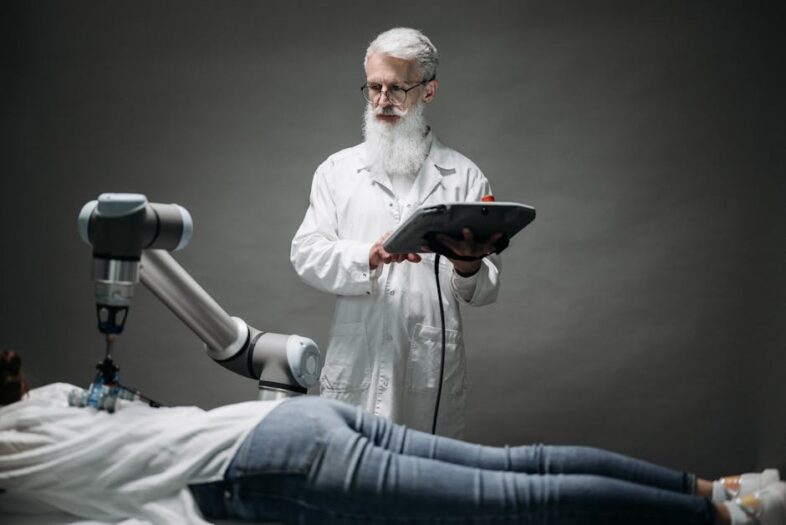Artificial Intelligence is increasingly transforming the healthcare sector, offering innovative solutions that enhance diagnostic accuracy, streamline administrative tasks, and improve patient outcomes. Recent developments highlight AI’s expanding role in medical diagnostics and its potential to reshape healthcare delivery.
Table of Contents
AI Adoption in China’s Healthcare System
A notable advancement is the deployment of AI systems like DeepSeek in China’s tertiary hospitals. Since January 2025, DeepSeek has been integrated into major medical institutions across the country, significantly improving diagnostic precision and operational efficiency. The AI-powered system assists in pathology, imaging analysis, and clinical decision support, reducing the cognitive load on healthcare professionals and optimizing patient management.
However, this widespread adoption raises important regulatory and ethical considerations, particularly concerning accountability in AI-assisted diagnoses and the risk of automation bias. The absence of a clear liability framework underscores the need for policies that position AI as an assistive tool rather than an autonomous decision-maker.
AI’s Growing Role in U.S. Healthcare
In the United States, AI’s impact is also profound. A study published in JAMA Network Open revealed that ChatGPT-4, an AI language model developed by OpenAI, outperformed human doctors in diagnosing medical conditions from case reports. The AI achieved an average score of 90%, while doctors using ChatGPT scored 76%, and those without it scored 74%. This finding suggests that AI can serve as a valuable diagnostic tool, offering second opinions and potentially enhancing decision-making processes in clinical settings.
Regulatory and Governance Challenges
Despite these advancements, the integration of AI into healthcare presents challenges. Regulatory bodies are striving to keep pace with rapid technological developments. The Food and Drug Administration has approved numerous AI products, yet concerns persist about overregulation and the need for adaptive governance frameworks. Experts caution against hasty regulatory actions that could stifle innovation, emphasizing the importance of balanced policies that ensure AI’s safe and effective use in healthcare.
AI and Patient Interactions
AI’s role in patient interactions is evolving. Studies indicate that AI systems like ChatGPT can exhibit a “better bedside manner” than some human doctors, providing empathetic and clear communication. This capability suggests that AI could assist in drafting patient communications, enhancing the quality of care and patient satisfaction.
The Future of AI in Healthcare
AI is poised to revolutionize healthcare by improving diagnostic accuracy, streamlining operations, and enhancing patient care. While challenges remain, particularly in regulation and ethical considerations, the potential benefits of AI integration are substantial. Ongoing research, thoughtful policy development, and collaboration between technologists and healthcare professionals will be crucial in harnessing AI’s full potential to transform the healthcare landscape.


